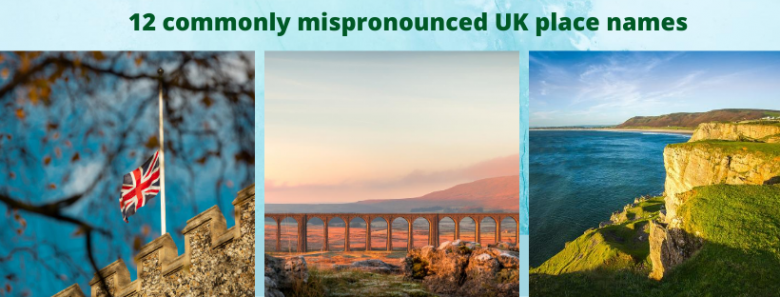Qui di seguito ti elenchiamo alcuni consigli per poter mantenere vivo l’inglese anche quando sei in vacanza. Il modo migliore per acquisire nuovi vocaboli ed espressioni è proprio cercando di creare un “mondo inglese” tutto attorno a te e sottoporti il più possibile alla lingua in tutte le sue forme: ascoltando podcast o canzoni e …
Let’s be honest, English pronunciation is not easy, nor are some place names we often come across when we travel through the UK, look at a map or read an article. The reason why there are so many exceptions in pronunciation is due to the fact that the language of the British Isles has undergone …
Impariamo alcuni modi di dire relativi ai colori. Tra parentesi la traduzione letterale del modo dire e in corsivo la traduzione che si utilizza in italiano Red a red herring (un’aringa rossa) – una pista falsa / un depistaggio The detective found a lot of documents on the crime scene but they all turned out …
Il linguaggio di internet è spesso costituito da sigle e abbreviazioni che vengono usate in chat, forum, commenti ad articoli, video o canzoni ma anche un semplice messaggio via smartphone può essere un terreno fertile per questo tipo di codice “misterioso”. In questa lista abbiamo inserito le sigle più comuni. Buona lettura e buona investigazione! …
10 modi di dire relativi al tempo atmosferico Hai notato quanti modi di dire ci sono con la pioggia come protagonista? Un modo di dire è sempre espressione della cultura di un popolo… la pioggia è spesso presente in proverbi o frasi idiomatiche in inglese perché nel Regno Unito la pioggia è davvero frequente.
Clicca sulle flashcard per scoprire la traduzione in italiano di questi verbi frasali che si utilizzano per parlare del tempo atmosferico. Nell’elenco seguente troverai alcuni verbi frasali che si utilizzano per parlare di effetti del tempo atmosferico.
Sports are great and there are so many… let’s collocate them with the correct verbs! Off you go! Collocations with DO Collocations with PLAY Collocations with GO






